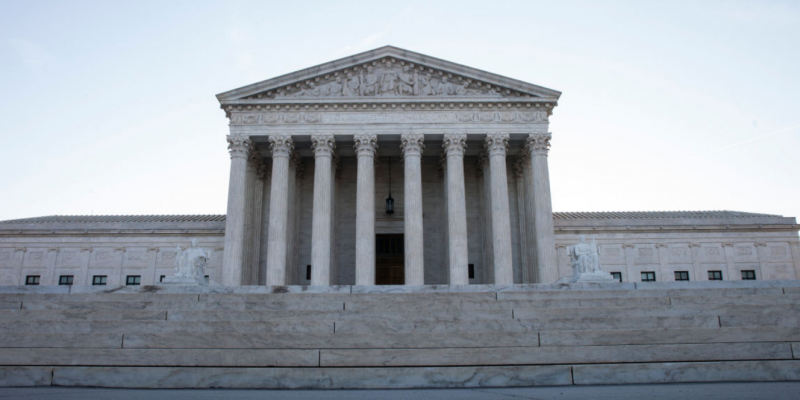The Supreme Court heard 80 minutes of arguments Tuesday over the validity of the Deferred Action for Childhood Arrivals (DACA) program created by executive order under former president Barack Obama.
The Trump administration moved to formally end DACA, which provides temporary legal status to nearly 700,000 young immigrants who entered the country illegally as children, in September 2017. The move was immediately challenged in court.
Eleven attorneys general and one governor, led by Texas, also sued the U.S. government over the program in Texas v. United States.
President Donald Trump tweeted Tuesday that he would still consider negotiating a deal with Democrats depending on how the court rules.
“Many of the people in DACA, no longer very young, are far from ‘angels,’” Trump tweeted. “Some are very tough, hardened criminals. President Obama said he had no legal right to sign order, but would anyway. If Supreme Court remedies with overturn, a deal will be made with Dems for them to stay!”
Many of the people in DACA, no longer very young, are far from “angels.” Some are very tough, hardened criminals. President Obama said he had no legal right to sign order, but would anyway. If Supreme Court remedies with overturn, a deal will be made with Dems for them to stay!
— Donald J. Trump (@realDonaldTrump) November 12, 2019
Twenty state attorneys general filed an amicus brief with the court last year supporting the program.
The Department of Homeland Security administers the program in which nearly 700,000 individuals are currently enrolled. To qualify, recipients must have entered the U.S. illegally before they were 16 years old, be able to prove they have lived in the U.S. continuously for five years, graduated high school, served in the U.S. military, or enrolled in school.
DACA does not include a path to citizenship, does not confer lawful citizenship status, delays deportation for a renewable two-year period, and allows DACA recipients to apply for work permits.
Media pundits were quick to criticize Trump’s tweet, arguing DACA recipients cannot stay in the U.S. if they have a criminal record.
According to a 2018 U.S. Citizenship and Immigration Services (USCIS) report, nearly 8 percent of total DACA requestors (59,786 individuals) had arrest records as of the date the systems were checked, which included offenses such as assault and battery, rape, murder, and drunk driving, among others. USCIS defines “requestors” as individuals approved and denied DACA.
Based on the most recent data analyzed, approximately 13-percent (7,814) of approved DACA requestors with an arrest were rearrested again after their grant was approved and prior to renewal, the report states.
Nearly 55 percent of DACA requestors (54.8) with more than one arrest (17,079) most recently had a DACA case status of “approved” as of the date the systems were queried.
“Criminal activity of DACA requestors has long been the subject of widespread discussion and speculation, with a regrettable lack of available data until now,” USCIS Director L. Francis Cissna said in a statement accompanying the report. “The truth is that we let those with criminal arrests for sexually assaulting a minor, kidnapping, human trafficking, child pornography, or even murder be provided protection from removal.
“Yet the courts rule that we are unable to change this policy,” Cissna adds, “even though those with criminal histories are getting through the system and permitted to remain in the country, despite having a high number of arrests for any types of crimes before or after receiving DACA protection.”
Cissna expressed “legitimate concerns” over a portion of the DACA population. He suggests until DACA is repealed, the USCIS data “only reinforces the need for its continued review and scrutiny, which was imposed unilaterally by the Obama administration in circumventing Congress. It’s our hope that it helps the public and policy makers better understand the reality of the entire DACA population.”
The court is expected to announce its ruling on the program next year.
This article was first published by The Center Square.
Advertisement
Advertisement

